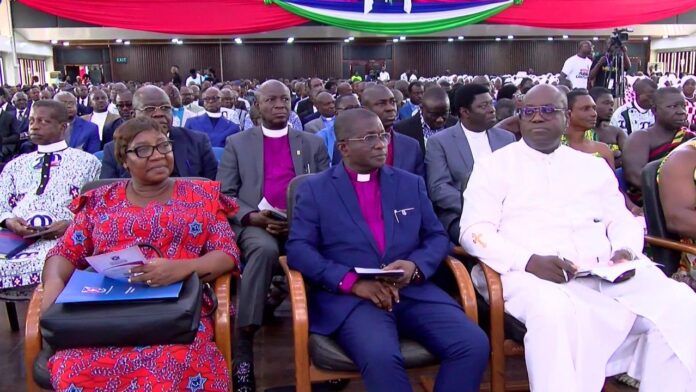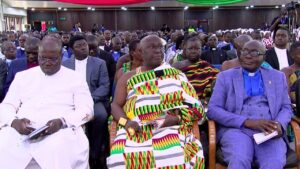The Presbyterian Church of Ghana (PCG), now nearing its 200th anniversary, has walked a long path in blending Ghanaian culture with the Christian faith.
From once rejecting cultural practices to now embracing many of them, the Church’s journey has seen both successes and shortfalls.
At the third public lecture of its Bicentennial Anniversary Celebration, the church recalled how the early Presbyterian missionaries condemned many traditional expressions of worship.
Practices like dancing, clapping, drumming, and even the role of chiefs were seen as pagan and unfit for Christian worship. This strict rejection led to disconnection and frustration among local believers, causing many to leave the church.
In response, the Church leadership began to reflect on the role of culture in faith. Realizing that culture could not be separated from the Ghanaian identity, the PCG slowly adopted cultural elements reshaping and aligning them with Christian values.
Today, traditional naming ceremonies, funeral rites, and even aspects of chieftaincy are accepted within the Church, giving space for Ghanaians to worship without losing their cultural identity.
A clear example is the inclusion of chiefs in the Church. Once viewed with suspicion for their role in pouring libation, chiefs are now welcomed into the faith. This change reflects how the Church has turned culture into a bridge, not a barrier, to Christianity.
Chieftaincy now collaborates with the Church in building strong communities rooted in both culture and faith.
Senior Lecturer at Trinity Theological Seminary and Speaker at the public lecture, Rev. Dr. Ernestina Afriyie, emphasized the importance of this cultural shift. She argued that Christianity in Ghana must be relevant to the people by understanding and incorporating their culture.
“We must know our culture and understand it, so we can produce a Christianity that is both Ghanaian and Christian,” she said.
While praising the progress made, she also highlighted challenges. The Church, she said, must research Ghanaian customs deeply to separate biblical truth from harmful practices.
She also urged the PCG to support local language education, warning that losing language could weaken both faith and identity in future generations.
Also addressing the public lecture, the 19th Moderator of the General Assembly of PCG, Rt. Rev. Dr. Abraham Nana Opare Kwakye, highlighted the broader impact of the Church in Ghana.
He traced its history to the arrival of the Basel missionaries in 1828 and pointed to the Church’s achievements in education and health.
“In this almost 200 years, the Lord has blessed the Church in many ways and blessed the country through the Church,” he said. “In the area of education, right from the very beginning, it was the Presbyterian Church that gave this country the educational structure until the reforms in the 1980s.”
With over 2,500 basic schools, 15 senior high schools, 5 colleges of education, 2 universities, and several hospitals and clinics, the PCG has played a major role in national development.
As the PCG prepares to celebrate its 200th anniversary in three years, its story is one of growth through reflection. What was once rejected as demonic has now been transformed into tools for unity and worship.
Though challenges remain, the Church continues to seek a balance between culture and Gospel working to make Christianity not just present but deeply rooted in Ghanaian life.




